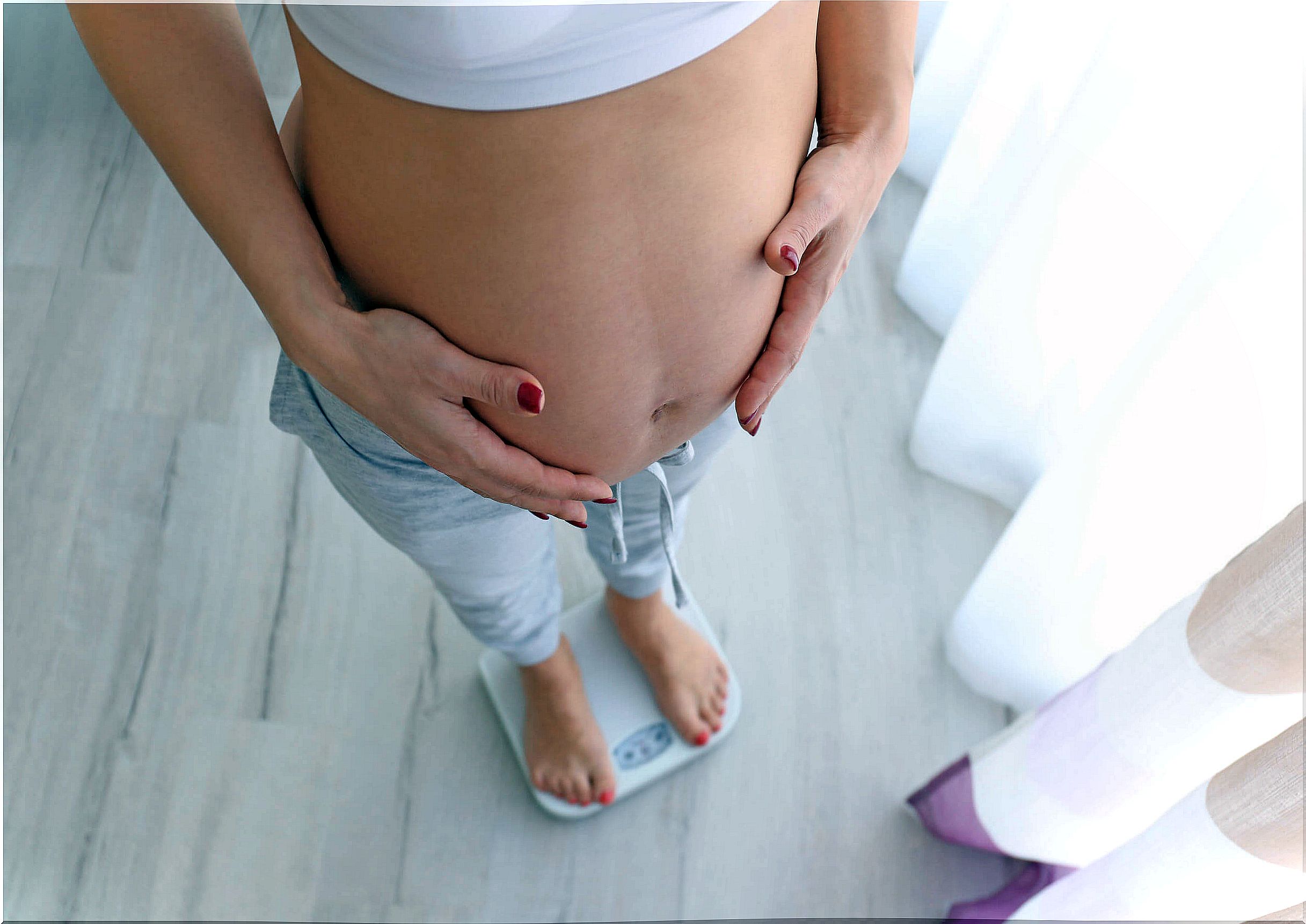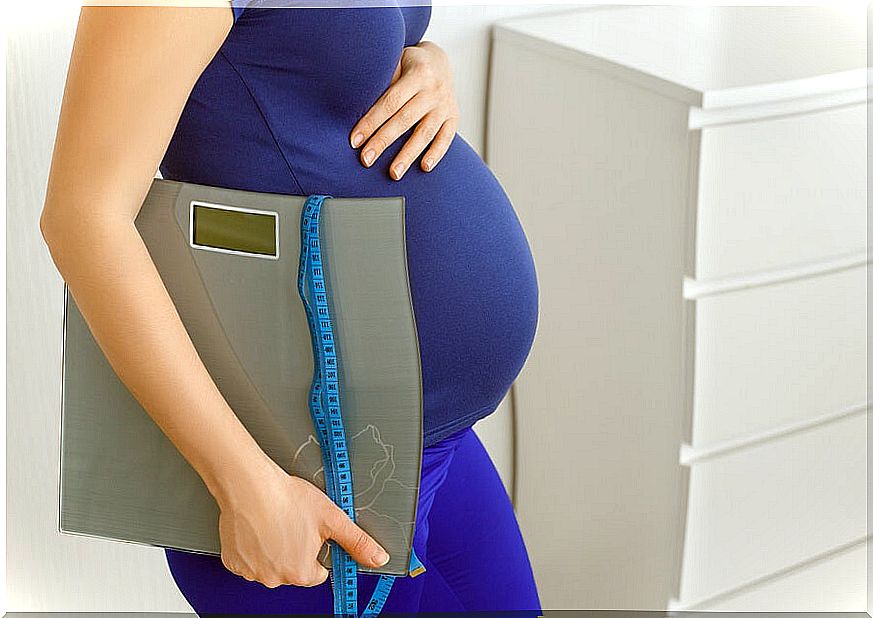Weight Gain In Pregnancy

Weight gain during pregnancy is a common and obvious phenomenon: babies are constantly growing and, with it, the weight of the mother. In fact, contrary to what is usually believed, under normal conditions the growth of the mother’s adipose tissue is scarce compared to the growth of the baby.
In the nine months that a pregnancy can last, weight gain should not exceed 18 kilograms in lean mothers (based on their body mass index) before pregnancy. Unfortunately, there are certain factors that increase the risk of being overweight and obese during this stage.
This considerably increases the risk of metabolic and cardiovascular diseases that influence the correct development of pregnancy.
How much should be the weight gain in pregnancy?

According to a publication of the US National Library of Medicine, weight gain is highly dependent on the mother’s previous situation. Generically, the total gain should be between 11 and 16 kilograms in a pregnancy in which the baby is born at term (above 37 weeks).
As weight gain depends mainly on the development of the baby and not on the mother’s abdominal fat – as is often mistakenly believed – it is clear that in the first trimester the increase will be more significant. The tissues of the future baby will go through a process called hyperplasia, in which its cells will multiply.
What factors influence?
The weight the mother had just prior to pregnancy is a predictor of what the gain “should” be in the next few months. For this, health professionals take into account the body mass index (BMI). Despite being in disuse by nutritionists for not providing such accurate information, it is still useful in this case.
The lower the mother’s BMI, the greater the weight gain should be during pregnancy. Thus, according to the aforementioned publication, an overweight mother does not usually gain more than 11 kilograms, while a low weight one should gain up to 18 kilograms.
Food also plays a fundamental role. Habits that are generally associated with weight gain in anyone – high-calorie diets based on ultra-processed foods such as junk food – also influence pregnant women.
All these changes are common during pregnancy, so the pathologies that lead to weight gain require a separate mention. Hypothyroidism is one of them and can also have harmful effects on the development of the baby’s nervous system.
Can weight gain be dangerous?
Yes, but this only happens when the increase exceeds the previously established limits. According to this scientific review study (2013), this can increase the risk of suffering from the following conditions:
- Arterial hypertension.
- Diabetes mellitus .
- Thrombosis.
- Urinary infections.
All these conditions increase the risk of obstetric complications, which can include from intrauterine growth retardation (IUGR) to abortions. For this reason, mothers with an exaggerated weight gain can be diagnosed with a high risk of suffering complications, which would require specialized prenatal control.

What can I do to avoid excess weight gain?
This situation can be influenced by various reasons, such as genetics, poor diet and previous illnesses. The best way to control weight gain is through proper prenatal care with an obstetrician and following healthy eating guidelines. Regarding the latter, some valid recommendations are the following:
- Instead of snacking on processed foods (like candy), eat a piece of fruit.
- Drink plenty of water.
- Avoid sugary drinks.
- Reduce the consumption of fried foods.
Avoiding a sedentary lifestyle is also important. Although high-impact sports activities can increase the risk of local trauma, in general, most exercise of light or moderate intensity can be done during pregnancy. However, when in doubt, consult your doctor!
Pregnancy is the best time to take care of yourself
We know that sometimes this weight gain cannot be controlled, as it may correspond to a genetic predisposition that gets out of hand. Despite this, personal care must be taken to the extreme, so going to a prenatal consultation early is the best option. Remember that the health of your baby also depends on you.










